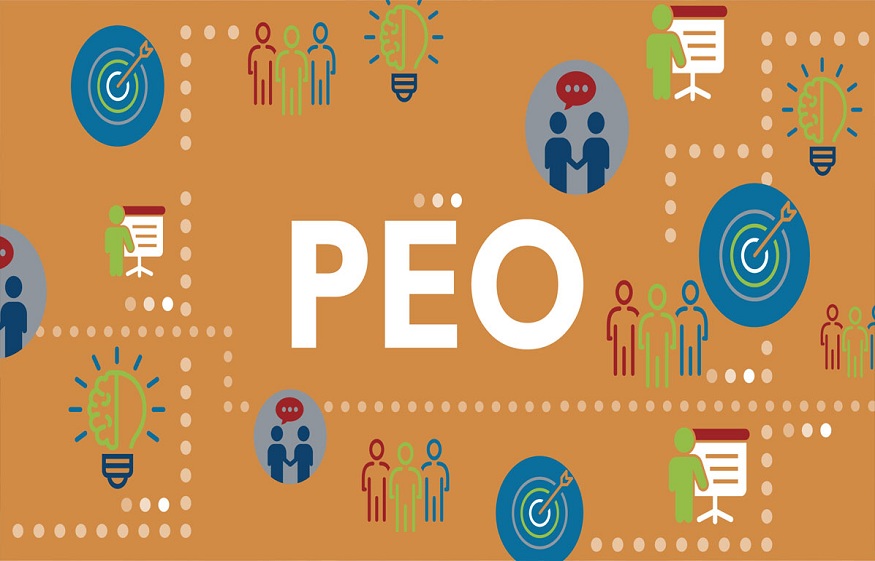Small and medium-sized firms can benefit greatly from the HR services offered by professional employer organizations. But with so many PEO alternatives available, choosing the best one may be difficult. This article provides tips to help you select one of the top PEO services that meet your business needs.
1. Research Multiple Provider Options
It is important not to make a hasty decision and instead research your options when choosing a PEO provider. Take the time to look into several highly-rated companies in your area. Begin by thoroughly reviewing each PEO’s website to compare key factors such as the services offered, any additional costs, minimum client or employee requirements, and years in business to understand their level of experience and reputation.
Examining client reviews on sites that can provide valuable perspectives. Long-standing clients may discuss things like quality of service, responsiveness, and their overall experience with a particular PEO. Pricing models also vary between PEOs, so compare options such as per employee pricing versus a percentage of your payroll costs.
Request proposals directly from top PEOs you are considering. This allows you to analyse important details side by side, such as specific pricing details, the terms of any contracts, and service level agreements. Speaking to current PEO clients directly can offer further insights beyond online reviews. Their first-hand experiences working with a provider can highlight important aspects of management style, responsiveness, and value received.
2. Evaluate Provider Expertise
Industry experience is valuable since PEOs familiar with your business model will better understand unique compliance needs. For example, a PEO experienced with professional services firms understands issues different from one focused on manufacturing. Certifications from groups demonstrate a PEO’s expertise in employment laws and regulations. Look for PEOs that maintain relevant certifications which require continuing education.
Dedicated in-house HR specialists customized to your industry or business type allows for more personalized guidance compared to outsourced general support. Ongoing training and certifications of HR representatives ensures the PEO stays updated on changing requirements. Regular training leads to better client service and compliance management over time.
Evaluating the systems and technology infrastructure provides insights into how efficiently the PEO manages core HR functions like payroll processing and benefits administration. Strong consideration should be given to PEOs with processes ensuring they can adapt quickly to regulatory changes and continuously enhance client services based on performance metrics and feedback.
3. Check Financial Stability
It is important to verify that the PEO you choose is financially stable before entering into an agreement. As the employer of record, the PEO will be handling sensitive responsibilities such as payroll tax payments and benefit premiums on your company’s behalf. Any financial issues on their end could negatively impact these services. There are a few crucial items you ought to study. First, take into account how long the PEO has been in operation. Newer companies may present higher risks since they have less time establishing a performance history. Well-established PEOs that have successfully operated for many years are generally a safer choice.
Request copies of independent audits of the PEO’s recent financial statements to verify their liquidity, assets, and general financial positioning. You also want to confirm they purchase insurance or bonds that guarantee payment of payroll taxes in case of default. Ask for references from current clients and check if they have experienced any issues with delayed paychecks or benefit reimbursements. This will give you insight into the PEO’s ability to manage cashflow responsibly.
Finally, find out about the contingency plans they have in place just in case unexpected challenges occur in the future. A reputable PEO will be transparent about risks and how they would ensure service continuity for clients. Taking these financial review steps can help you feel confident entrusting your payroll responsibilities to a stable partner.
4. Consider Management Approach
When partnering with a PEO, it’s important to choose one with a management approach that prioritizes effective communication and responsiveness. This helps ensure a successful long-term relationship. Key things to evaluate include having a dedicated account manager and support team assigned to your company’s PEO partnership. This allows for personalized service and a main point of contact to address any questions or issues that arise. It’s also beneficial to look for PEOs that offer clients online portal access.
This provides a convenient way to stay updated in real-time on important things like payroll
processing, benefits enrolment, policy changes etc. In addition, find out what responsiveness standards a potential PEO adheres to. Response times committed to for various requests or issues can give an indication of how promptly matters will be handled. You’ll also want a PEO that actively communicates upcoming policy changes in a clear and timely fashion so your business is never surprised by new requirements.
5. Try Out a Free Trial Run
Rather than committing long-term without fully understanding a PEO’s service quality, requesting a trial period is highly recommended. A trial allows you to test the waters on a smaller scale before a larger investment. It serves as a low-risk method to experience the PEO’s services firsthand from multiple perspectives.
A portion of your current employees will often have their payroll and HR management handled by the PEO during the trial. This gives you the chance to observe how their procedures work. You can assess factors like the efficiency with which payroll is done, the administration of benefit enrolment, and the usability of any software or portals that are employed. Additionally, you’ll get to collaborate with the PEO’s designated representatives directly. This provides information on how quickly queries or problems are resolved.
6. Finalize with a Comprehensive Agreement
Once you’ve agreed on a PEO, you must formalize the agreement with a detailed contract. upon define expectations and avoid misunderstandings later on, all agreements must be agreed upon in writing by all parties. To avoid future misunderstandings, the contract should clearly define the services covered as well as any additional costs. It should also clarify your company’s and the PEO’s transparency duties. This includes details such as payment procedures, bill due dates, as well as penalties for late or missing payments.
The contract should also state how it will be cancelled, as well as the necessary notice procedures for either side. Understanding your obligations in this case is crucial. A statement of how any disagreements will be addressed should also be included in the contract. Because no business partnership is perfect, it is critical that the PEO commit to transparency and continual development. The contract requires them to reply to any concerns or client feedback as soon as possible.
Conclusion
You may select the best professional employer organization service for your specific company needs by spending the time upfront to understand PEO capabilities, examine alternative options, evaluate competency, check financials, consider management style, test a trial, and eventually finalize a comprehensive agreement. A strategic PEO relationship may bring considerable HR as well as compliance benefits while requiring less effort.





